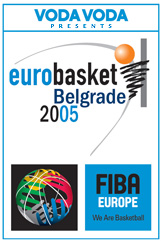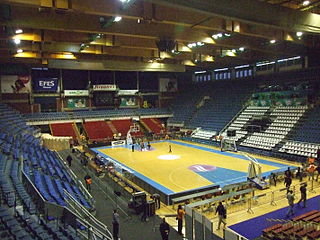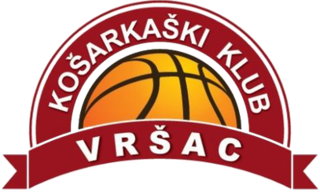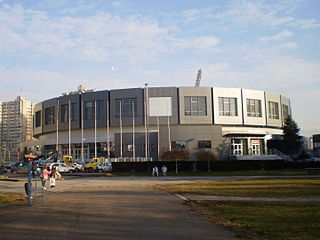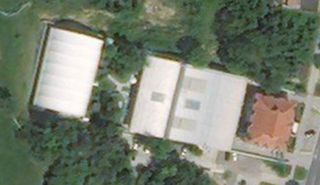 | |
| Location | Vršac, Vojvodina, Serbia |
|---|---|
| Coordinates | 45°7′5.05″N21°18′38.52″E / 45.1180694°N 21.3107000°E Coordinates: 45°7′5.05″N21°18′38.52″E / 45.1180694°N 21.3107000°E |
| Capacity | 4,400 [1] |
| Construction | |
| Opened | April 5, 2001 |
| Architect | Petar Arsić |
| Tenants | |
| KK Vršac (2001–present) ŽKK Vršac (2001–present) | |
| Website | |
| http://www.millennium.rs/ | |
The Millennium Centar (Serbian : Центар Миленијум, Centar Milenijum) is a multi-purpose indoor arena located in the city of Vršac. It is the home ground of basketball club KK Vršac and ŽKK Vršac and has a capacity of 4,400 seats. [1] The arena is also used for concerts and other live entertainment.

Serbian is the standardized variety of the Serbo-Croatian language mainly used by Serbs. It is the official language of Serbia, co-official in the territory of Kosovo, and one of the three official languages of Bosnia and Herzegovina. In addition, it is a recognized minority language in Montenegro where it is spoken by the relative majority of the population, as well as in Croatia, North Macedonia, Romania, Hungary, Slovakia, and the Czech Republic.

Multi-purpose stadiums are a type of stadium designed to be easily used by multiple types of events. While any stadium could potentially host more than one type of sport or event, this concept usually refers to a specific design philosophy that stresses multifunctionality over specificity. It is used most commonly in Canada and the United States, where the two most popular outdoor team sports – football and baseball – require radically different facilities. Football uses a rectangular field, while baseball is played on a diamond and large outfield. This requires a particular design to accommodate both, usually an oval. While building stadiums in this way means that sports teams and governments can share costs, it also imposes some challenges.

An arena is an enclosed area, often circular or oval-shaped, designed to showcase theatre, musical performances, or sporting events. It is composed of a large open space surrounded on most or all sides by tiered seating for spectators, and may be covered by a roof. The key feature of an arena is that the event space is the lowest point, allowing maximum visibility. Arenas are usually designed to accommodate a large number of spectators.
